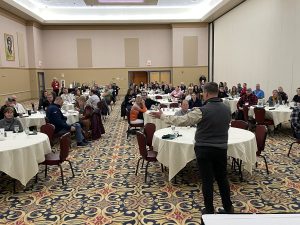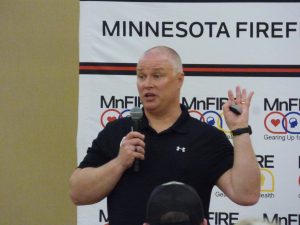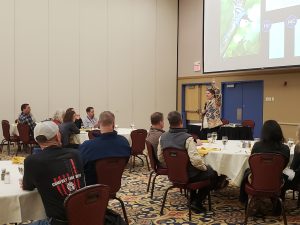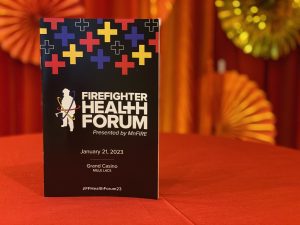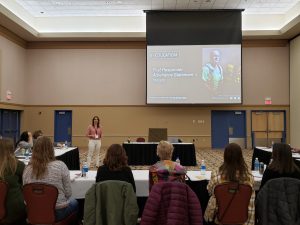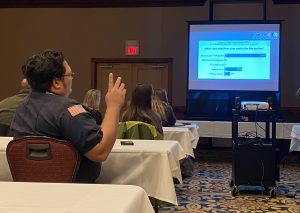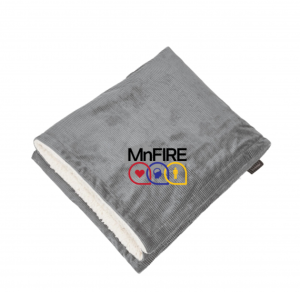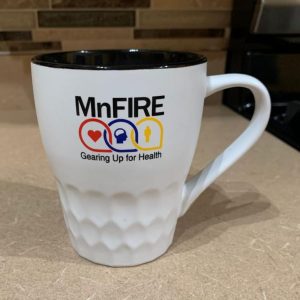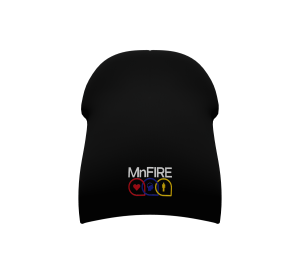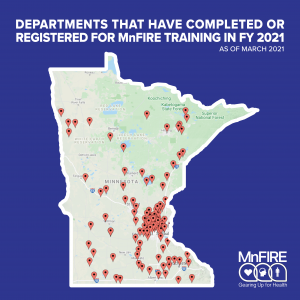That’s a wrap on the 2023 Firefighter Health Forum! We appreciate everyone who was able to join us for this important annual conference in central Minnesota filled with meaningful discussions on firefighter health and wellness.
An animated keynote from Dr. Jody Janati shed light on tips and tricks to communicate effectively and with zero drama. And retired Fire Chief Arjuna George shared his personal experience with burnout and his journey to recovery and better self-care during his afternoon keynote.
In breakout sessions for current peer supporters, fire service leaders, and fire service significant others and spouses, we tackled some of the most critical health issues facing Minnesota’s fire service and their families – from Hometown Heroes Assistance Program resources, to how to have difficult conversations with fellow firefighters and prioritize mental wellness.
The first-ever spouses and significant others track at the forum premiered the brand-new Spouses & Significant Others MnFIRE training curriculum that we’re thrilled to provide to firefighter partners and families this year and beyond! We discussed the tools, skills and perspective needed to make smart decisions about the physical and mental health of the family. Here’s what one attendee said about this new avenue of support:
“From day one, eight years ago, when my husband became a volunteer firefighter, I wanted to learn how to support him on the home front. Spouses had zero resources until now. I am so grateful for all the work MnFIRE is doing to empower firefighters and their families.”
Attendees connected over how to best support the health and well-being of their firefighter loved ones, and we discussed the best ways to navigate potential issues that can arise when you have a firefighter in your family.
Thanks again to everyone who made the 2023 Firefighter Health Forum a success, including our keynote speakers Arjuna George and Dr. Jody Janati, the MnFIRE board, and all of our other health expert partners.
If you’re interested in scheduling a FREE follow-up MnFIRE health and wellness training with your entire department, please see our training page for more information. We’ll soon be rolling out training sessions on new topics including sleep, nutrition, fitness, the session for spouses and significant others mentioned above and more.
Save the date
We’re already looking forward to the 2024 Firefighter Health Forum at Grand Casino Mille Lacs on Saturday, Jan. 20, 2024. We hope to see you there next year!

